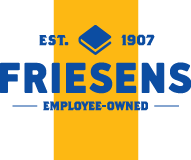September 23, 2021
National Day for Truth and Reconciliation

This summer, the Government of Canada has passed legislation making September 30th the National Day for Truth and Reconciliation.
Over a period of more than a century, 150,000 First Nations children endured unimaginable conditions in an environment designed to strip them of their cultural heritage in the Indian Residential School System. For many Canadians, this part of the country’s legacy only became well known when Prime Minister Stephen Harper delivered an apology on behalf of the Federal Government in 2008.
The National Day for Truth and Reconciliation is an opportunity for Canadians “to honour Survivors, their families, and communities” as well as establishing and maintaining a mutually respectful relationship between the First Nations and non-First Nations peoples. For this to take place, there must be awareness of the past, an acknowledgement of the harm that has been inflicted, atonement for the causes, and action to change behavior.
Reconciliation is critical, and a complex, multifaceted process that works toward solidarity as a society and as a country. It is the responsibility of every Canadian to honour treaties, acknowledge and respect First Nations rights and titles, as well as actively work to let go of negative perceptions and stereotypes. Learning about Indigenous history, identifying the impacts of colonization, attempts at assimilation, and cultural genocide as well as recognizing the critical roles Indigenous Peoples have held in the creation and ongoing history of Canada.
Taking responsibility as an individual is important. This means never uttering, accepting, or ignoring racist comments or stereotypes. Respect Indigenous beliefs, cultures, traditions, worldviews, challenges, and goals, both for the individual, and community. Supporting the reclamation of identity, language, and culture is a step forward necessary for Canada, allowing for healing and the building of relationships.
In 2021, Friesens undertook some important steps to encourage better understanding and inclusion. So far this year we’ve:
- Provided diversity, equity, and inclusion (EDI) training for all staff
. - Provided EDI training for all managers
. - Launched a diversity scholarship to assist underrepresented students
- Worked to promote EDI values throughout our organization.
Friesens has decided to remain open on September 30th. We think actively working on actions like those listed above are more important than giving ourselves the day off.
If you are interested in learning more about Truth and Reconciliation, feel free to visit the National Centre for Truth and Reconciliation (NCTR). Alternatively, survivor Chief Robert Joseph shares his experiences with the residential school system here.
Friesens operations are located on original lands of Anishinaabeg, Cree, Oji-Cree, Dakota, and Dene peoples, and on the homeland of the Métis Nation. We respect the Treaties that were made on these territories, and we acknowledge the harms and mistakes of the past. As such, we are grateful and humble guests on this territory.







